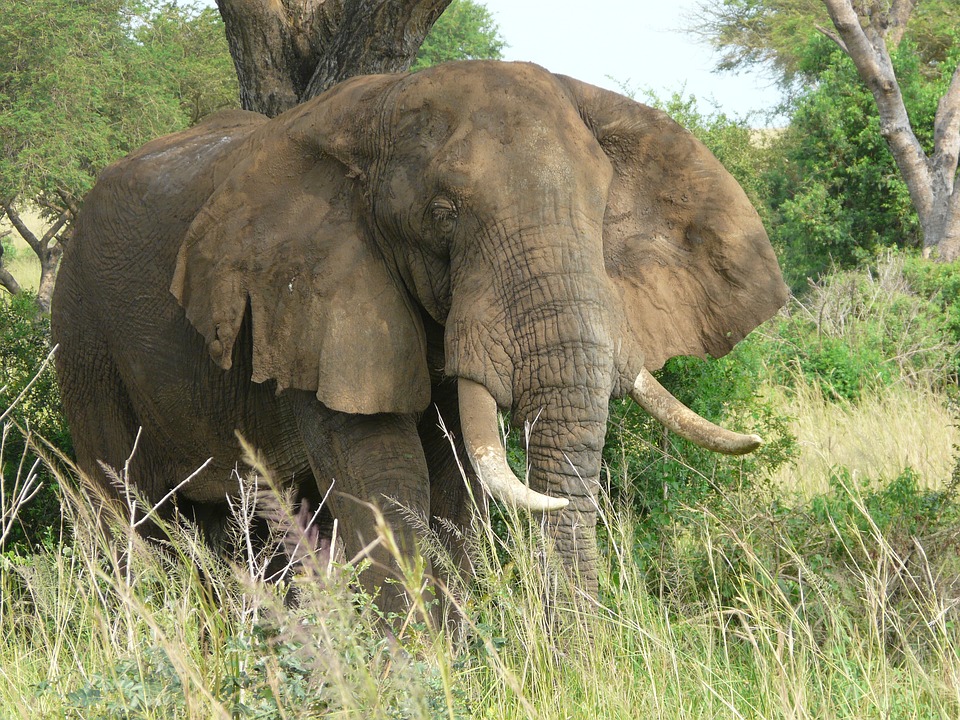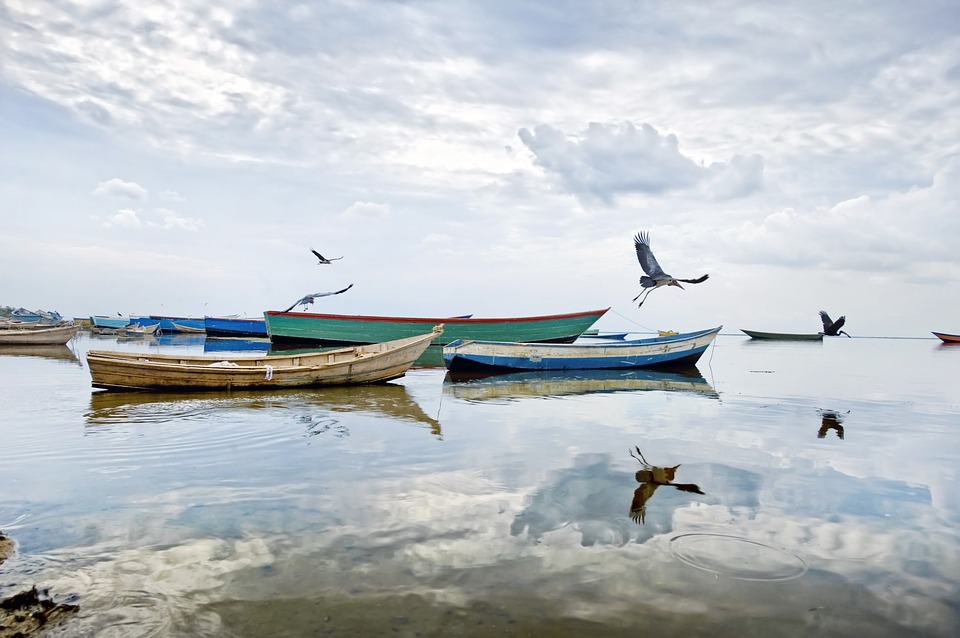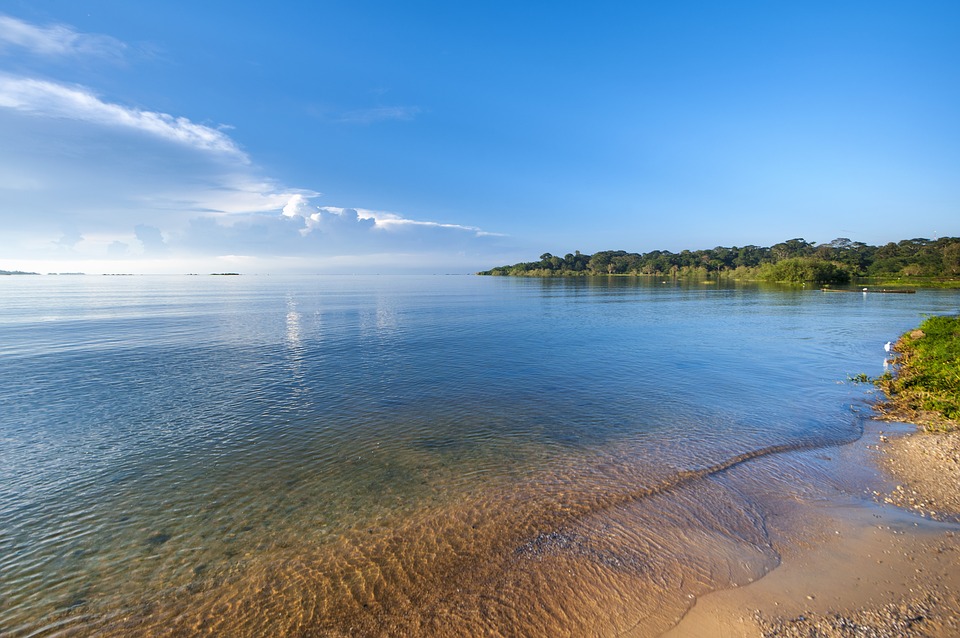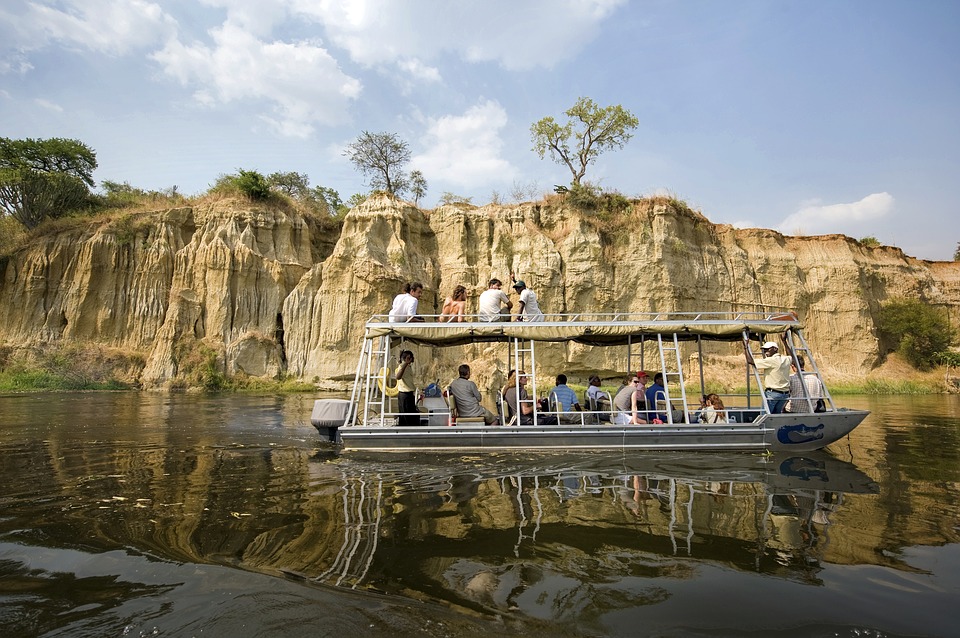| QUICK FACTS |
|
|
| Location |
Kampala, Uganda |
| Academic Term |
Autumn Semester / Spring Semester |
| Credits |
16 semester credits per session |
| Prerequisites |
None |
| Program Manager |
Shannon Quinn | studyabroad@uw.edu |
| Application Deadline |
May 15 (Autumn Semester)
Nov 1 (Spring Semester) |
| Financial Aid |
All accepted students can apply for need-based and scholarships, grants, and loans. Students can also apply for the SIT Pell Grant Match, which provides matching grants to all students receiving Federal Pell Grant funding. |
| HIGHLIGHTS |
| General |
Examine contemporary development with case studies on environment, health, gender, and civil society in the vibrant city of Kampala. |
Visit development projects, cultural sites, and a national park as you examine social, political, economic, and environmental issues related to global development.
WHAT MAKES SIT UNIQUE
SIT Study Abroad offers a field-based, experiential approach to learning.
Each program has a small group of students (typically 10–35).
SIT students gain access to many different stakeholders and experts relevant to the program-specific issues.
Incorporates extensive out-of-classroom learning through excursions to field stations, NGO headquarters, more.
Many students use their Independent Study Projects as a basis for senior theses on their home campuses.
Many students use this experience to successfully apply for fellowships such as Fulbrights and Watsons.
CONNECT WITH SIT
Visit the SIT website
Call the Admissions Counselor at (888) 272-7881
Email studyabroad@sit.edu
Read updates from the field on the SIT Blog
Follow CET on Facebook, Twitter, and Instagram
Watch student videos on YouTube
Site
Kampala is a vibrant, cosmopolitan city representing a diverse range of ethnic groups.

Prerequisites and Language Requirements
None.
Credits and Conversion Scale
You will approx. receive 24 UW credits per term. How our office will determine the amount is through our Credit Conversion Scale for the program.
If you would like some assistance, schedule an appointment with one of our Program Assistants here.
Program Structure
There is no "typical day"on an SIT program. Activities may take place on any day of the week and at any time of day to be in accordance with local norms and to take advantage of once-in-a-lifetime learning opportunities. Thus, the schedule and structure of the program are likely very different from what students are used to on their home campuses. The semester progresses in phases:
- The program begins with a thorough orientation.
- During the first two and a half months of the program, students are engaged in foundational coursework, including:
- thematic seminars, including education excursions,
- language instruction focused on improving practical communication skills, and
- a field research methods and ethics course that prepares students to conduct independent research.
- For the last month of the program, students conduct an Independent Study Project (ISP) on an approved topic of their choosing.
- Finally, students present their project, participate in program evaluations, and prepare to return home.
Courses
Students will take courses that cover the following topics:
- History, politics, and geography
- Economic development, health, and society
- Gender, women’s empowerment, and development
- Natural resources, the modern state, and political conflicts
- Models of eco-tourism, conservation, and natural resource management
- Land rights and food security
During the final four weeks of the program, students will apply their learning by completing one of the following:
Independent Study Project (ISP)
Students can choose to use their new language and cultural skills and the academic knowledge they have acquired to complete an Independent Study Project (ISP) on a topic of interest to them.
Sample Topics:
- Environmental conservation and development
- Rural finance self-help groups and poverty alleviation
- Healthcare systems and management of epidemics
- Refugee education, health, and food security
- Decentralization, participatory processes, and community empowerment
- Health, education, and the effectiveness of the Millennium Villages project
|
Internship
SIT internships are hands on and reflective. As part of this internship, students will complete work assigned by the organization and/or shadow the work of professionals within the organization. A person from their staff will be designated to make sure their experience is relevant to them, and to give them the training and advice they need to perform their duties.
In addition to completing the internship, students will submit a paper processing their learning experience on the job and analyzing an issue important to the organization they worked with, and/or they will design a socially responsible solution to a problem identified by the organization.
Sample internship topics and sites:
- Promoting social accountability, equality, and democratic governance at Foundation of Human Rights Initiative
- Working in refugee settlements or transitional camps or providing support to urban refugee populations through the Office of the Prime Minister’s Department of Disaster Preparedness or the United Nations High Commissioner for Refugees
- Supporting efforts to provide humanitarian and developmental assistance to children and mothers at UNICEF
- Working in departments on wetlands, forestry, and environmental services at the Ministry of Water and Environment
- Assisting an immigration and anti-human-trafficking task force at the Ministry of Internal Affairs
- Participating in constructive, creative, and cooperative approaches to conflict resolution at the Centre for Conflict Resolution
|
Please visit the program website to learn more about the courses.
If you’re looking for a record of how courses from this institution have been transferred in the past, visit the credit equivalency database to help you determine what foreign courses might satisfy your academic needs here at the UW.
For more information about receiving credits for your study abroad, visit Earning credits abroad.

Housing
Students will participate in two homestays, one in an urban area (six weeks) and one in a rural area (one week). Students will become a member of a local family, share meals with them, join them for special occasions, talk with them in their language, and experience the host country through their eyes.
The UW Study Abroad Office can't officially advise you about visas.
The volume and diversity of students participating, the shifting requirements of foreign governments, and the complexity of these applications make it impossible for us to accurately advise you on immigration policies.
If your program requires a visa, documentation will be provided from your host institution after your acceptance.

Program Expenses
The Study Abroad fees will be posted to your MyUW student account and can be paid the same way that you pay tuition and other fees. Check your MyUW Account periodically for due dates. Students must pay the course-related fees directly through the SIT program website.
Financial Aid
- A large percentage of UW students utilize financial aid to study abroad. Most types of financial aid can be applied to study abroad fees.
- You can submit a revision request to increase the amount of aid for the quarter you are studying abroad. These additional funds are usually awarded in the form of loans. To apply, fill out a revision request form, attach the budget sheet (available via the link at the top of this brochure) and submit these documents to the Office of Student Financial Aid. For more information about this process, consult the Financial Aid section of our website.
- Consult the Financial Aid section of our website for more information on applying for financial aid, special considerations for summer and early fall programs, and budgeting and fundraising tips.
Scholarships
Budgeting Tools
We understand that figuring out your finances for study abroad can be complicated and we are here to help. Here are some ways to find additional support:
- Click on the Budget Sheets link at the top of this brochure to view the estimated budget of all expenses for this program.
- Contact the Global Opportunities Adviser at goglobal@uw.edu to learn more about how to pay for study abroad.
- Attend a Financial Planning Workshop offered by UW Study Abroad – more information is on the Events page of our website.
- Visit the Finances section of our website.

Application Process
To apply for this program, click the "Apply Now" button and follow the prompts to create an application. After you create your application, click on each of the links on your study abroad application homepage and complete the remaining application requirements: questionnaires, material submissions, and electronic signature documents.
This study abroad program also requires completion of a secondary application specific to the program provider. Visit the program website to complete it.
Orientation
To be eligible to study abroad, you must complete the mandatory pre-departure orientation facilitated by UW Study Abroad. Visit your study abroad homepage to complete this mandatory orientation. You must also attend any program-specific orientations offered by the program director.
UW Study Abroad Office also offers several optional orientations aimed at preparing you for your study abroad experience. You can visit the Orientation section of our website to view the current schedule and to register for any optional orientation sessions that pique your interest.
Orientation must be completed prior to the enrollment deadline for the quarter that you are studying abroad.
Disability Accommodations
The University of Washington is committed to providing access and reasonable accommodation in its services, programs, activities, and education for individuals with disabilities. To request disability accommodation for this program, contact Disability Resources for Students at least 8 weeks in advance of your departure date. Contact info at disability.uw.edu.
Withdrawals
The UW Study Abroad Fee is non-refundable once the payment contract has been submitted. Students withdrawing from a program may also be responsible for paying a percentage of the program fee depending on the date of withdrawal. More details about the withdrawal policy are included in your payment contract. Note that no part of the program fee is refundable once the program has begun.
The date of withdrawal is considered the business day a withdrawal form is received by UW Study Abroad. Notice of withdrawal from the program must be made in writing by completing the following steps:
- Provide notice in writing to the program director that you will no longer be participating in the program.
- Submit a signed withdrawal form to UW Study Abroad.
Visit the Withdrawals section of our website for more information.